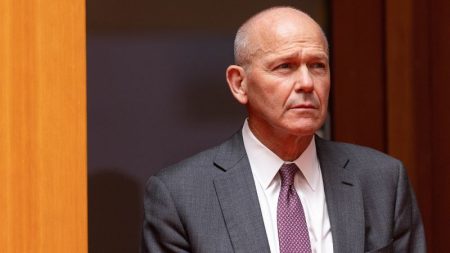Former President Donald Trump met with CEOs in Washington this week and expressed his intentions to slash corporate taxes once again. Specifically, Trump mentioned wanting to reduce the corporate tax rate to 20%, down from the current 21%. This move is in line with his previous statements about extending the 2017 Tax Cuts and Jobs Act, a key achievement during his presidency. The tax cuts implemented by Trump have been heavily criticized by Democrats and are set to expire at the end of 2025. Extending these tax cuts could cost $4.6 trillion, and further reducing the corporate rate could add to this cost.
During his meeting with business leaders at the Business Roundtable lobbying group, Trump emphasized his desire to lower the corporate tax rate to 20% because it is a round number and would potentially lead to a boost in job creation by making the United States more competitive on a global scale. This move aligns with Trump’s focus on economic policies aimed at promoting growth and job opportunities for Americans. However, critics of Trump’s tax policies argue that such cuts disproportionately benefit corporations and high-income individuals, rather than providing substantial benefits to the broader population. It remains to be seen whether Trump’s proposal will gain traction and be implemented as part of future economic policies.
The potential impact of Trump’s proposed corporate tax cuts raises concerns about the federal budget and overall economic growth. The Congressional Budget Office estimates that extending the existing tax cuts could result in a significant cost of $4.6 trillion. With an additional reduction in the corporate tax rate, the total cost could escalate further, leading to implications for government revenue and funding for essential services and programs. These budgetary considerations are essential in evaluating the feasibility and consequences of Trump’s proposed tax policies.
Trump’s approach to tax policy has been a cornerstone of his economic agenda, with a focus on reducing taxes to stimulate economic growth and encourage business investment. By advocating for a corporate tax rate of 20%, Trump aims to create a competitive environment for American businesses to thrive and expand both domestically and globally. However, the efficacy of such tax cuts in achieving long-term economic benefits remains a subject of debate among policymakers and economists. The balance between providing incentives for businesses and ensuring adequate government revenue to support public needs is a crucial aspect to consider in evaluating Trump’s tax proposals.
The discussion around Trump’s potential corporate tax cuts underscores the broader debate on tax policy and its implications for economic development and income inequality. Advocates of lower corporate taxes argue that such measures can spur job creation, innovation, and investment, leading to overall economic growth. However, critics contend that corporate tax cuts primarily benefit wealthy individuals and corporations, exacerbating income inequality and reducing resources for social programs. The trade-off between promoting business competitiveness and addressing societal needs through tax policies is a complex issue that requires careful consideration and analysis. Trump’s latest proposals on corporate tax cuts reflect his ongoing commitment to pro-business policies and economic growth, but the ultimate impact of these measures remains to be seen as they are subject to legislative approval and economic outcomes.















